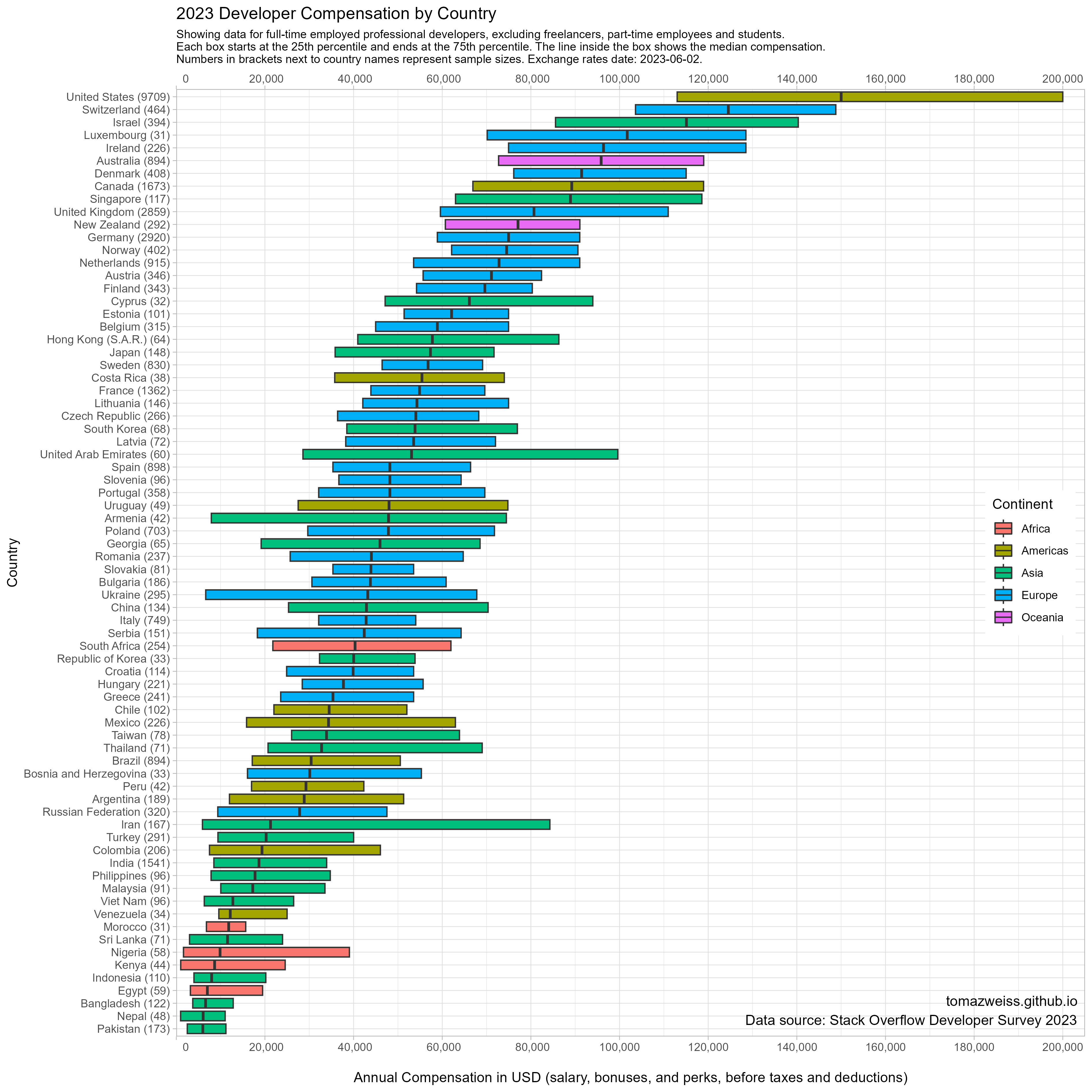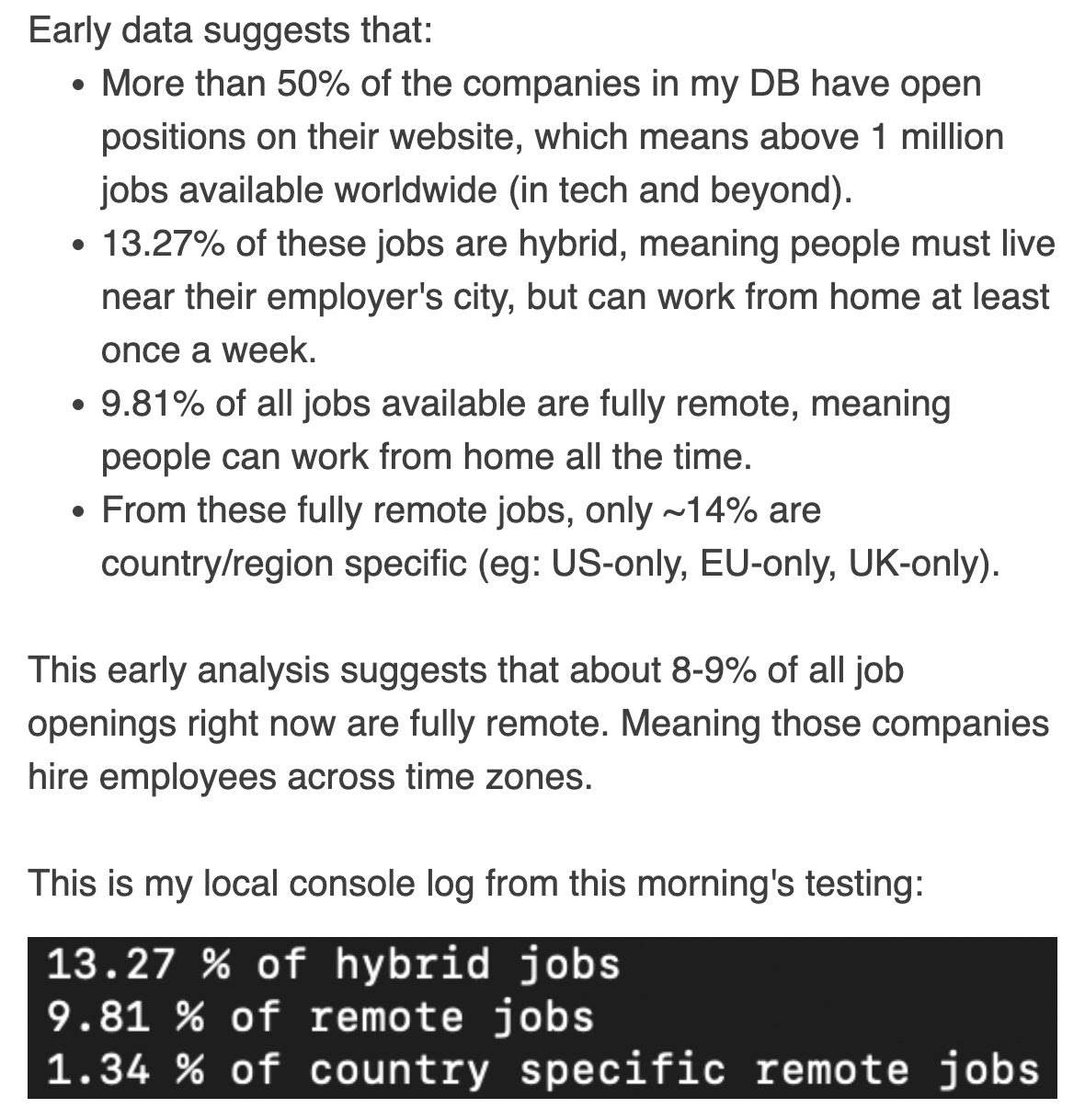Live in the EU. Work remote for the US.
Hey,
I'm Sergio Pereira, and this is the Remote Work newsletter
Last week, I wrote about the rise of Fractional remote jobs, following many question about my Fractional CTO work and the recent workshop I lectured at the Remote Jobs Braintrust on this topic.
Still, the Fractional opportunities are still a fringe of the market, compared to full time remote jobs. As I get through testing the JobsCopilot.ai with different profiles, skill sets and seniority profiles I come to realise that remote work is much bigger than I had imagined myself.
Today I'm telling you about Salary Arbitrage, the biggest opportunity in remote work. Take a look at this chart from the recent Stack Overflow Developer Survey:

There are some obvious takeaways, right?
The US is the country with highest salaries, with a minimum of ~$110k/year reported. But, on the opposite end of the list, the highest salary reported in Pakistan is ~$16k/year. So, if the highest paid Software Developer in Pakistan lands a remote US job earning a "low" US salary, that means an almost 7x salary increase. Mind blowing stuff!
What's even more impressive is that even for countries deemed as "developed" and having "high salaries", the gap to those US salaries is still huge.
Take a look into Germany or France, two of the most prominent countries in the EU. The highest local salaries for Software Developers are around $90k and $70k a year, respectively. A well paid SWE in those countries can still gain a nice 50% salary bump by working remotely for the US.
I live in Portugal, myself. Local salaries for Software Developers, as per this survey, range between ~$30 and ~$70k a year. To be honest, I used to earn a bit below those $30k/year back in the day, so the market here used to be a bit worse than it is nowadays.
Working remotely for companies in the US was truly life changing for me. I remember 5x'ing my salary back in 2016. That's stuff I couldn't have even dreamt with before then.
It goes without saying that from the standpoint of a US company, this is also a massive opportunity to arbitrage costs. Paying an attractive salary in most countries in the world is much cheaper than paying a low salary in the US.
As you probably know, I've been building the JobsCopilot.ai. I have a scraper "listening" for updates in jobs published by ~400k companies around the world. Most of the work has been on cleaning the data and fine tuning the matchmaking between jobs and users.
One of my earliest findings is that there are thousands of companies hiring remotely, including many companies in the US. This was my recent article about some early findings based on this data.
This is a TL;DR:

I'll soon launch the Jobs Copilot to the ~1500 people on the waitlist. Stay tuned.
In other news, this week I had my most engaging session so far at the Remote Jobs Braintrust. With more than 50 people joining the live session "How to start a Fractional/Freelance career". If you'd like to learn how I build my client pipeline as a Fractional CTO, join here to access the recording and the Q&A on Slack.
Thanks for reading this newsletter until the end. You can read all past editions here. Make sure to share it with your friends and colleagues so they can read it too.
If you're interested in sponsoring this newsletter, send me an email or DM.
See you next Friday,
Sergio Pereira,
Startup CTO & Remote Work Lover


